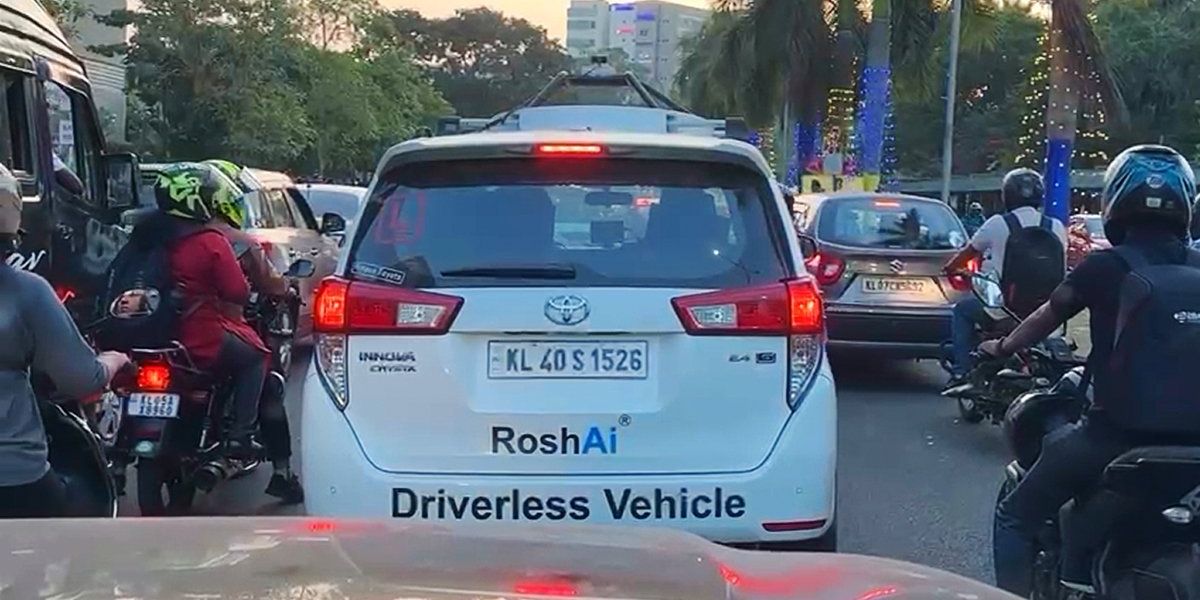Former Uber CEO Travis Kalanick famously said, after experiencing New Delhi’s chaotic roads, that India will be the last place in the world to get self-driving cars. But a handful of startups think the country could be the perfect testbed for creating autonomous vehicles that can handle anything.
A recent video from Bhopal-based startup Swaayatt Robots suggests they’re making progress. In the 6-minute long clip, a sensor-laden SUV weaves through narrow unmarked streets, dodging pedestrians, dogs, cows, slow-moving tractors, and a constant stream of scooters overtaking, cutting across, and even driving on the wrong side of the road.
A video from Swaayatt Robots shows the company’s self-driving car navigating hectic streets.Swaayatt
Swaayatt CEO Sanjeev Sharma says the video highlights the two major characteristics of Indian traffic that makes it so challenging. It is both stochastic and adversarial, which in simpler terms means that road conditions and driver behavior are almost entirely unpredictable, and that other road users are more likely to play chicken than give way.
While self-driving cars developed by Western technology companies have already begun commercial operations, this rollout has been made possible only by training on millions of miles of driving data painstakingly gathered over many years. And despite all that training, these companies are still bedeviled by the “long tail problem”—the idea that no matter how many scenarios you train on, you will always encounter rare but unique “corner cases” that will flummox your vehicle. Here’s where technology developed in India has a major advantage, says Sharma.
“The kind of traffic and environment we’re negotiating, the entire navigation course can be labeled as a corner case,” he says. “This is the most complex that it can get for an autonomous vehicle. If you’re able to build here, this technology is universal.”
Tackling India’s uniquely unruly streets requires a different approach to that taken in the West, says Sharma. Cars made by companies like Waymo and Cruise are loaded with sensors, including cameras, radar, lidar, and high-precision GPS, and they rely heavily on high-definition 3D maps. Their goal is to create a highly detailed and deterministic model of the environment around the car, Sharma says.
But while that might work on the orderly, gridlike streets of Phoenix, it won’t get you far in India. As a result, the Swaayatt team has gone back to the fundamentals to create algorithms that generate probabilistic representations of the environment. This process is normally very computationally expensive, but Sharma says they’ve found a way to do it in real time, though he’s cagey about the details. Broadly, the approach relies on “data-efficient reinforcement learning” but also involves modules that uses game theory to model interactions between different road users as well as…
Read full article: Startups Say India Is Ideal for Testing Self-Driving Cars

The post “Startups Say India Is Ideal for Testing Self-Driving Cars” by Edd Gent was published on 04/24/2024 by spectrum.ieee.org





































